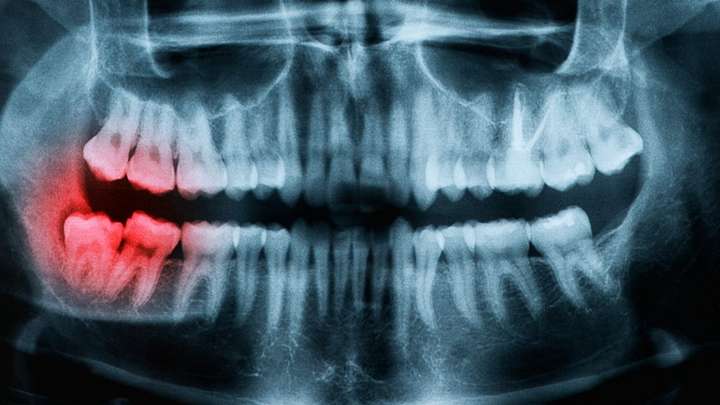As we get older, we get used to our bodies changing. We grow, and even when we reach our final “adult” size, there’s always something going on below the surface that we can’t see.
This includes your mouth, and you usually don’t notice the changes that happen until they become visible, like shifted teeth.

Yes, your teeth continue to move long after you thought they were finished growing. Your wisdom teeth have come (and, for most people, gone), puberty is well in the past, and you’re solidly into your adult stages. So why are your teeth shifting?
First, it’s essential to understand that you’re not alone and have nothing “wrong” with you. Everyone goes through this because of the way our bodies work. However, you should be aware of a few causes of teeth shifting, and you may be able to prevent them from moving around more!
1. Continued Jaw Growth (and Shrinkage)
You’re right if you think your face looks different than it did as a child. It’s not just the “baby fat” disappearing. Your jaw continues to grow forward at a very imperceptible rate for your whole life.
The jaw, or the mandible, as it’s officially called, slooowwwlly moves, and this minuscule growth pushes your lower front teeth into the uppers. Eventually, the upper teeth push out, or the lower teeth get too crowded, resulting in crooked teeth. If you’ve had orthodontic treatment and continue to use your retainer, you can prevent this. Otherwise, it’s a standard part of life.
To complicate matters more, not only does the lower mandible move forward, but it’s shrinking, too. The width of your jaw, particularly between the two lower canines, gets smaller, which speeds up the crowding issues, whether you wear a retainer or not.
2. Bruxism and Wear and Tear
Do you wake up with morning headaches? Are your teeth a little extra sensitive lately? Maybe your shoulders and neck are tight, or your facial muscles hurt.
These are signs of bruxism, a sleep disorder that causes you to unconsciously grind your teeth and clench your jaw.
Not all bruxers realize they’re doing these behaviors until the damage is already on its way. By then, your enamel is eroding, and your teeth could crack or chip.
Over time, your teeth become shorter as the grinding wears away at the top of them. Your “at rest” oral posture changes, and your bite is affected as your teeth shift.
An easy solution to prevent these complications is wearing a night guard. A custom night guard covers your upper or lower teeth and prevents them from touching, which stops the wear and tear from grinding.
3. Dental Issues and Tooth Damage
You already know your adult teeth grow and push out your baby teeth. But you might not realize that once your “permanent” choppers come in, they continue to grow.
So, if you lose a tooth, the surrounding ones will shift and try to fill that empty gap. This includes those above or below it. For instance, if you lose a lower tooth, the teeth above it will elongate and try to drop into that space, causing your jaw and other teeth to shift.
Other types of oral damage that can cause shifting include advanced gum disease (periodontitis), which can turn into jaw bone loss. Your teeth don’t have the support needed to stay in place and loosen. They’ll likely become infected or fall out (or both) without treatment.
Of course, the apparent cause of dental-related tooth shifting is orthodontic treatment. Braces and Invisalign force the teeth to move into a strategic position. When you take the orthodontics off, the teeth remain unstable for months, and if you don’t wear your retainer, they can shift back into their old spots.
4. Just Plain “Getting Older”
Our teeth and jaws move as we age, but so do our lips, cheeks, and tongue. Your lips tend to get tighter, putting pressure on your teeth and causing crowding.
This aging cycle impacts your smile, so you show more of your lower teeth than your upper teeth. If you’ve seen side-by-sides of a person in their youth versus their old age smiling, you can tell the difference.
Conclusion
Understanding the cause of teeth shifting can help you plan to stop it before it becomes obvious. The most crucial step is to have a healthy oral hygiene routine, including regular dental visits, to reduce the chances of gum disease.
Then, if bruxism or other problems is going on, don’t ignore them. Grab a night guard, see a specialist, and fix the issue at its source to avoid the complications caused by teeth shifting later.

